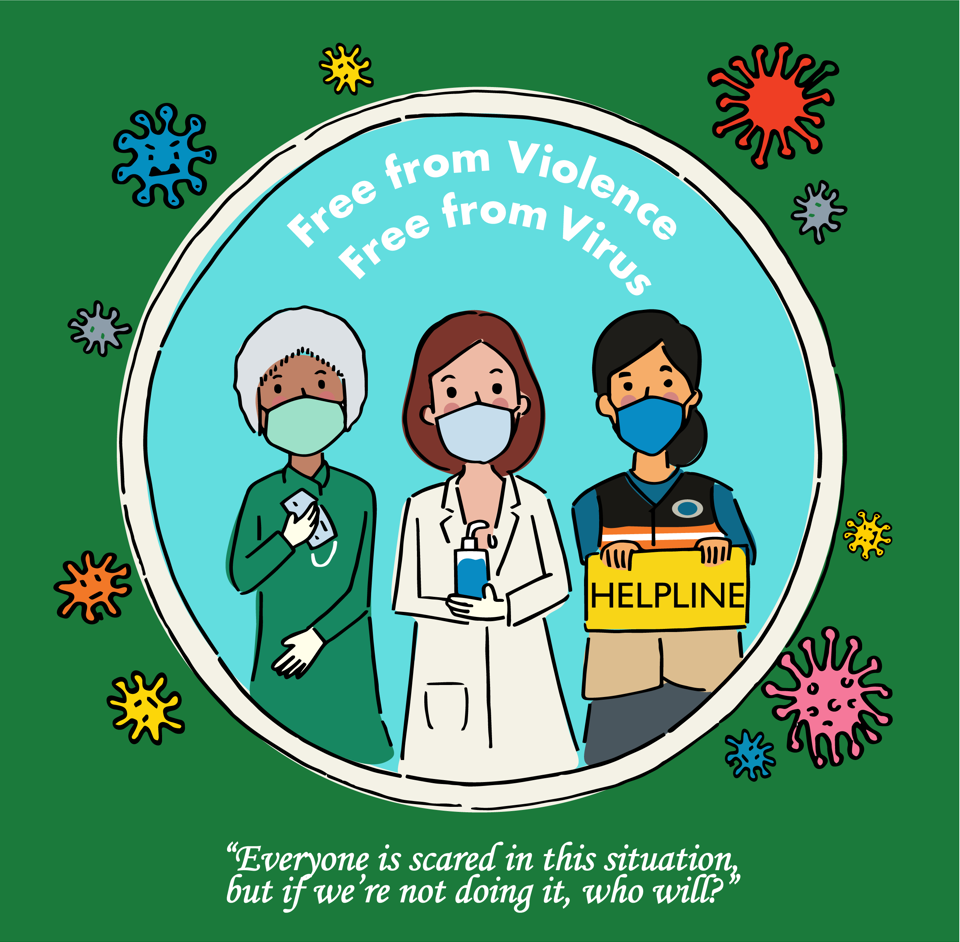Everyone is scared in this situation, but if we’re not doing it, who will?
Interviews with staff and volunteers from Myanmar’s Women’s Organizations Network (WON) and Migrant Monitoring Group (MMG), MyanmarDate:

As the number of returning migrants increased in Myanmar due to COVID-19, so did the need to ensure that the virus could be contained. To provide access to safe quarantine for all returning migrants, the government requested the support of local actors. Under the EU-funded Safe and Fair programme, Myanmar’s Women’s Organizations Network (WON) and Migrant Monitoring Group (MMG) partnered to set up quarantine facilities to house returning women migrant workers.
Than Nwe Tun (volunteer MMG, quarantine centre in Myawaddy): At first, it was difficult for the women migrant returnees to settle into the quarantine centres and hold to physical distancing rules. Fear of stigmatization of those who have stayed in quarantine facilities has also been a huge concern, so much so that some women hid or bribed taxi drivers to drive them directly to their home villages. Everyone is stressed out in this situation and the women and girls are worried and they cry, saying I don’t want to stay here, this is like a jail. The women also worry about getting infected, and if they do, they question who will care for them.
Phyu Thaw (project manager, WON): You can imagine, 21 days is a very long time and they get very bored. But our MMG volunteers spread awareness on not only about COVID-19, but also on violence against women and girls (VAWG) and gender-based violence (GBV). Sharing of information on COVID-19 and the prevention methods has helped. Partners like MMG did a lot of work and awareness activities, providing [the women] IEC materials and explaining the COVID situation, and then things changed. Awareness campaigns were also done at the village and community level, disseminating information, education and communication (IEC) materials and negating rumours about the returning migrants and COVID-19.
Pyae Phyo (volunteer MMG, Border Control Facility zone): Information about safe migration, and safety and health information are the most needed topics for any migrant worker. Everyone is scared in this situation, but if we’re not doing it, who will? I am more scared that I will have the virus and be responsible for spreading it to the returning migrants.
Than Nwe Tun: Some returnee women have shared cases of violence and abuse experienced during their migration journey. Such occurrences are of course not restricted to the COVID-19 period, but rather migrant women deal with complicated and nuanced social issues continuously. They hold on to a lot of secrets and also feel insecure.
MOVING FORWARD
Aung Myat (president of MMG): Services must start focusing on people’s psychological wellbeing rather than the necessities that have been provided by individual donors. Everybody has their own kind of difficulties, anxiety, trouble and stress. So if we can have counsellors or experts in the quarantine centres, and the Border Control Facility zone and the migrants can open up and share their feelings with the experts, it will be better and such cases will not happen again. This support is needed even after this pandemic is over.
Pyae Phyo: Psychosocial support is needed, but financial assistance is also needed, since many migrants do not have money to even get back to their homes. The Department of Social Welfare offers 30,000 MMK (around USD $22) to support families with infants but besides this, there are currently no government aid plans for returning migrants.
Phyu Thaw: Over time, the local government has become familiar with the Safe and Fair programme, and this relationship has been helpful for responding quickly to the imminent needs in the COVID-19 context. MMG played an important role in setting up the community-based quarantine centres, but emphasised Safe and Fair’s reputation was an added benefit. This is a very short-term, emergency programme but Safe and Fair is recognized for working with migrants and this really helped.
The current plan for government quarantine facilities is to continue operating until December but the future of the facility quarantine centres remains uncertain. With migrants still returning every day, the quarantine centres have become a safe space and a home for the especially vulnerable during these uncertain times.
The ILO-UN Women programme “Safe and Fair: Realizing women migrant workers’ rights and opportunities in the ASEAN region”, under the global EU-UN Spotlight Initiative to eliminate violence against women and girls, supports front-line service providers to ensure essential services are available for women migrant workers who are subject to violence. More: www.spotlightinitiative.org/safe-and-fair
This story was re-structured based on the original article: https://asiapacific.unwomen.org/en/news-and-events/stories/2020/09/in-myanmar-quarantine-facilities-become-first-responders-for-returning-migrant-women
Written by (original article): Lesly Lotha
Edited by: Gihan Hassanein